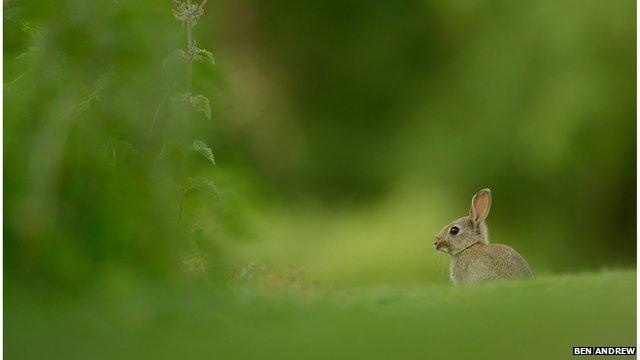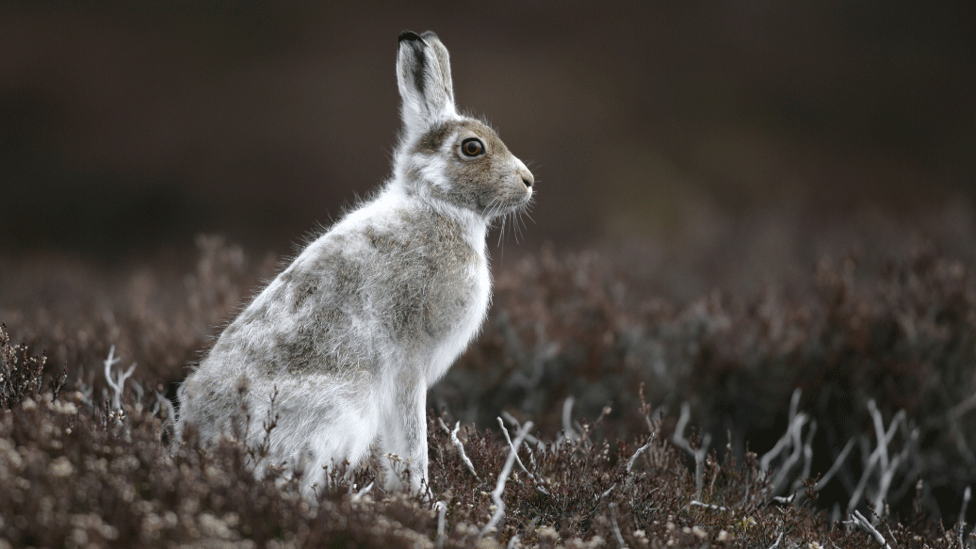Citizen science: Rabbit and hare population mapped
- Published

Hares are thought to be declining in parts of the UK
Biologists are calling on the public to report sightings of rabbits and hares as part of a conservation effort.
The animals are easier to spot in spring when vegetation is low and the breeding season is under way.
Hares may be declining in parts of the UK, while rabbits have been hit by myxomatosis and other viral diseases, says the Mammal Society.
People are being asked to send in photographs of rabbits and hares to help map the UK population.
Dr Fiona Mathews, senior lecturer in mammalian biology and chair of the Mammal Society, said: "We have very poor information on rabbits and hares - and it's important to know if numbers are going up or down.
"They are part of the ecosystem and lots of other animals depend on them, either through grazing of their habitat or as a food source for foxes or birds of prey."
Mammal atlas
She said some parts of the UK had very low populations of rabbits and hares, particularly where there had been disease outbreaks. However, in other regions they have become so abundant they have become agricultural pests.

Rabbits have a rounder shape than hares and dark brown eyes
The Mammal society wants people across the country to send in sightings of wild rabbits or hares across the countryside, including parks, fields and mountains.
The data will be used in a national atlas of mammals to support future conservation and research projects.
Derek Crawley, who is co-ordinating the atlas, said rabbits and hares can be distinguished by their gait and appearance.
"Hares are larger, have long limbs and lollop along whereas the rabbit has a bobbing gait," he said.
"The ears are also distinctive: those of hares are longer and have black tips."
Sightings of rabbits and hares, or their signs in the countryside, such as droppings and burrows, with any photographs taken, can be reported via the Mammal Tracker app, The Mammal Society, external website, or by posting information to The Mammal Society.
- Published5 March 2015
